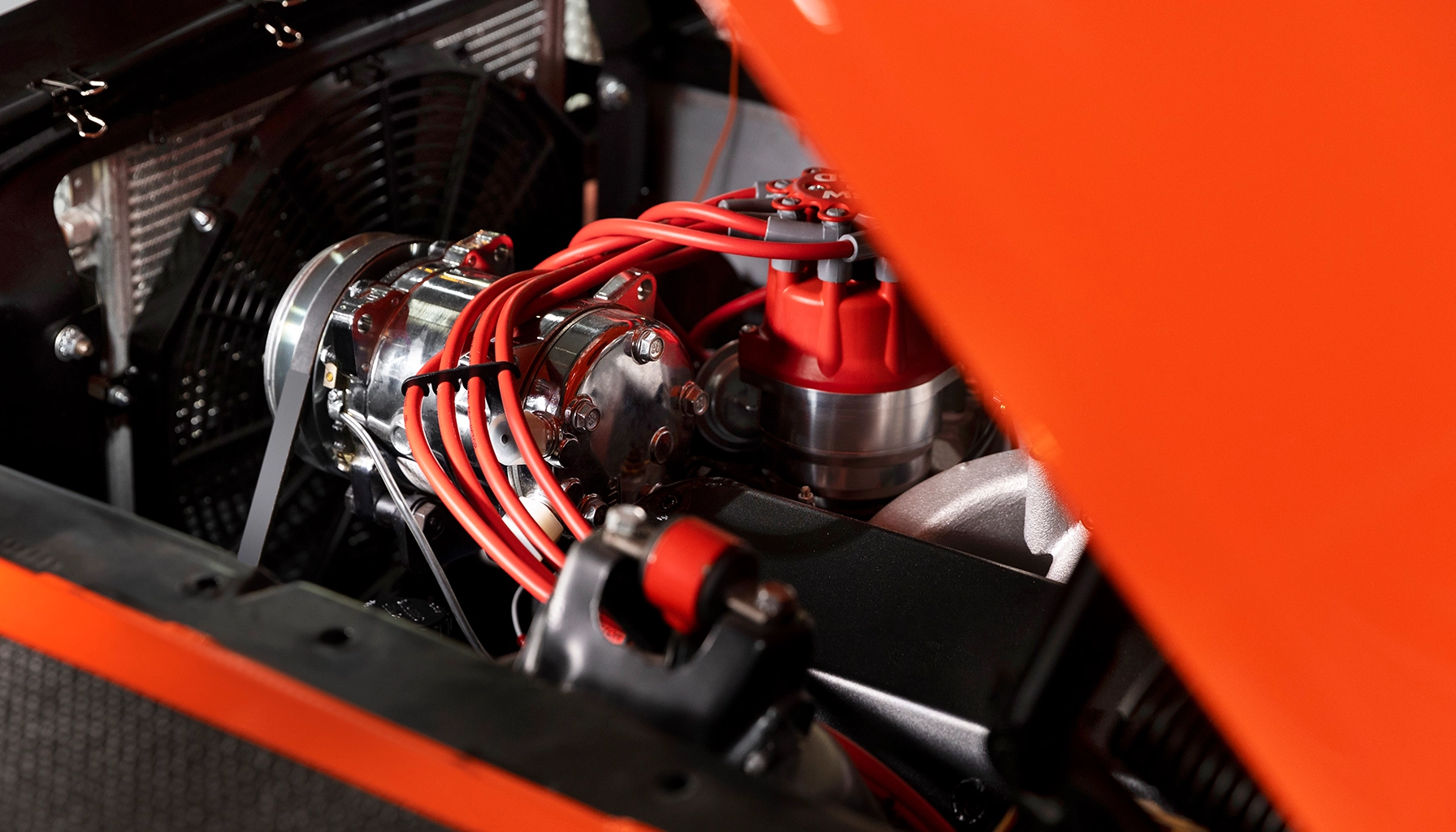The Hyundai head gasket is a vital and crucial engine’s part which plays an essential role in the vehicle proper and efficient operation which acts as a robust seal between the cylinder head and the engine block and preventing fluid leaks and maintaining pressure within the cylinders.
Given the importance of the Hyundai head gasket in engine performance, understanding how it works, recognizing signs of failure, and knowing maintenance and replacement methods can help Hyundai owners prevent serious engine problems and extend the engine’s lifespan. In this article, we will give you 10 facts about Hyundai head gasket that you should know about this crucial component.
1. The Role of the Head Gasket in Hyundai Engines
The head gasket is located between the cylinder head and the engine block, helping to create a tight seal between these two sections. Its primary function is to prevent coolant and engine oil from leaking into the cylinders while ensuring compression pressure is maintained within the cylinders.

In Hyundai vehicles, this component is manufactured with high precision and quality to ensure the engine performs optimally and to prevent issues such as reduced engine power and increased fuel consumption.
2. Signs of a Failing Hyundai Head Gasket
A blown head gasket can present various symptoms, and being aware of them can help prevent more severe engine damage.
Increased Engine Temperature
One of the most noticeable signs of a failing head gasket is an increase in engine temperature and overheating. This issue usually occurs due to coolant leaking into the combustion chamber and a subsequent drop in coolant levels.
Reduced Engine Oil Level
Other signs include reduced engine power, white smoke from the exhaust, decreased engine oil level, and the presence of oil in the cooling system. If you notice any of these symptoms, it is essential to visit a repair shop for a thorough inspection of the head gasket.
By staying informed about these aspects, Hyundai owners can ensure their vehicles run smoothly and avoid costly repairs.
3. Factors Contributing to Hyundai Head Gasket Failure
Understanding the various factors that can lead to head gasket failure in Hyundai vehicles can help prevent issues before they occur.
Excessive Engine Heat
One of the primary causes of head gasket failure is excessive engine heat. Overheating can result from issues such as a malfunctioning cooling system or driving under harsh conditions, leading to damage to the head gasket. Additionally, using low-quality coolant or failing to replace it on time can significantly reduce the lifespan of this component.
Incorrect Head Gasket Installation
Incorrect installation of the head gasket during replacement can also cause fluid leaks and premature failure. Therefore, following technical guidelines and using genuine parts during repairs is crucial.
4. How to Replace the Head Gasket in Hyundai Vehicles
Replacing Hyundai head gasket is a critical and delicate process in maintaining and repairing Hyundai engines. This procedure requires precision and expertise and is best performed by a professional mechanic.
First, the engine must be cooled, and the coolant and oil need to be drained. Then, the cylinder head is removed using appropriate tools, paying close attention to the bolts and the order in which they are removed and replaced.
After removing the cylinder head, the surfaces of both the head and the engine block should be meticulously cleaned and inspected for any damage or scratches. The new head gasket must be carefully placed without any warping or layers, and then the cylinder head is reinstalled with the correct sequence and torque specifications. Once the process is complete, the engine should be refilled with fresh fluids and checked for leaks and proper operation.

By following these steps and understanding the factors that affect head gasket integrity, Hyundai owners can ensure their engines run smoothly and efficiently.
5. The Importance of Head Gasket Quality in Hyundai Engine Performance
The quality of the head gasket has a direct impact on the performance and lifespan of Hyundai engines. A high-quality head gasket can withstand the pressure and heat generated by combustion and effectively prevent fluid leaks.
Using low-quality gaskets can lead to premature failure of this component and serious engine problems. Additionally, high-quality gaskets are usually made from more durable materials and feature optimized designs, which enhance engine efficiency and longevity.
Therefore, using genuine and standard parts in Hyundai engine repairs is crucial and can prevent additional costs and unexpected breakdowns.
6. The Role of the Cooling System in Maintaining Hyundai Head Gasket Health
The engine cooling system plays a vital role in maintaining the health of the Hyundai head gasket by controlling and keeping the engine temperature within an optimal range.
If the cooling system fails or malfunctions, the engine temperature can quickly rise, potentially damaging the head gasket. Regularly checking and replacing the coolant can prevent the buildup of deposits and maintain its efficiency. Additionally, inspecting the thermostat, water pump, and radiator is essential.
These components must function correctly to ensure the coolant flows evenly and effectively throughout the engine. Regular maintenance and servicing of the cooling system can extend the head gasket’s lifespan and prevent serious engine issues.
7. Differences Between Genuine and Fake Head Gaskets in Hyundai Vehicles
Genuine and counterfeit head gaskets have significant differences that can greatly affect the performance and longevity of Hyundai engines. Genuine head gaskets are produced by Hyundai or reputable suppliers and are designed and manufactured according to strict quality and technical standards. These gaskets are made from high-quality, heat- and pressure-resistant materials and are well-coordinated with other engine components.
In contrast, counterfeit head gaskets are often made from low-quality, cheap materials that fail to perform their functions correctly. Using fake gaskets can lead to fluid leaks, reduced engine efficiency, and even severe damage. Additionally, these gaskets are not fully compatible with the original engine design, causing issues such as warping and unfavorable temperature changes. To ensure optimal engine performance and avoid additional costs, it is always recommended to use genuine and reputable head gaskets.
8. Costs Associated with Replacing a Hyundai Head Gasket
Replacing the head gasket is one of the more complex and expensive procedures in maintaining and repairing Hyundai engines. The cost of this replacement depends on various factors, including the vehicle model, the extent of engine damage, and the mechanic’s labor charges.
Generally, the cost includes the price of the gasket itself, labor costs for removing and reinstalling the cylinder head, and sometimes additional expenses for replacing related parts such as bolts and nuts. Besides direct costs, replacing the head gasket might also require new coolant and engine oil, adding to the total expense.

Moreover, if there is collateral damage to other engine components, such as the cylinder head or engine block, repair costs can significantly increase. Therefore, regular maintenance and early prevention of gasket failure can help reduce long-term expenses.
9. Preventive Measures for Hyundai Head Gasket Failure
Preventing head gasket failure can significantly reduce costs and serious engine problems. One of the most important preventive measures is the regular and meticulous maintenance of the cooling system. Timely replacement of coolant and ensuring the proper functioning of the thermostat, water pump, and radiator can prevent engine overheating and subsequent head gasket damage.
Using high-quality engine oil and changing it regularly also plays a crucial role in maintaining head gasket health. High-quality engine oil can reduce heat and prevent wear and corrosion of engine components. Additionally, proper driving habits and avoiding excessive engine load can help prevent head gasket failure. It is recommended to always use genuine and standard parts and promptly visit a repair shop if any signs of gasket failure are noticed.

10. Hyundai Head Gasket: Tips from Mechanics and Experts
Automotive repair professionals and experts offer valuable advice for maintaining and repairing Hyundai head gaskets that can enhance engine performance and longevity.
Regular Maintenance
One of the most crucial recommendations is to adhere to Hyundai’s recommended maintenance schedule and perform regular servicing. This includes timely replacement of coolant and engine oil, as well as checking the cooling system’s condition and ensuring all its components are functioning correctly.
Immediate Attention to Signs of Failure
Experts also advise that any signs of head gasket failure, such as increased engine temperature, fluid leaks, reduced engine power, or unusual exhaust smoke, should be addressed immediately by visiting a repair shop. Delaying repairs can lead to more severe damage and higher costs.
Use of Genuine Parts
Using genuine and standard parts is another essential recommendation from specialists. Genuine Hyundai head gaskets are manufactured with high precision and quality materials, ensuring they can withstand engine pressure and heat effectively. Fake or low-quality gaskets can deteriorate quickly and cause more problems.
For purchasing original Hyundai engine parts in Dubai, we recommend contacting Arsintrading. Genuine parts ensure optimal performance and durability.
Proper Driving Habits
In addition, paying attention to proper driving techniques and avoiding excessive engine loads can help prevent head gasket failure. Driving under harsh conditions or with heavy loads can raise engine temperatures and damage the gasket.
Conclusion
The head gasket is a critical component of Hyundai engines, playing a significant role in ensuring proper and efficient engine performance. Understanding the signs of failure, the factors influencing gasket integrity, and preventive measures can help Hyundai owners avoid serious engine issues and reduce repair costs.
Following expert recommendations, such as using genuine parts, adhering to regular maintenance schedules, and practicing proper driving habits, can contribute to the longevity and optimal functioning of Hyundai head gaskets. By applying these tips and recommendations, you can ensure the best performance and extended lifespan of your Hyundai engine.



